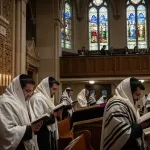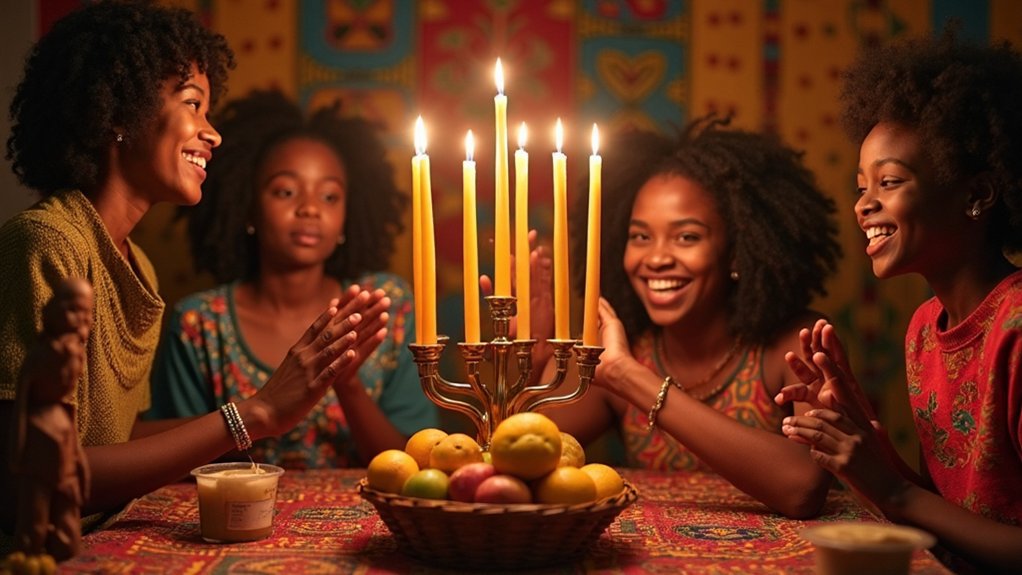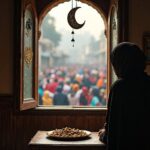Kwanzaa is a unique holiday that celebrates African heritage, culture, and community. The traditions and meaning of Kwanzaa focus on important values like unity, self-determination, and collective responsibility.
During Kwanzaa, families and communities come together to light the kinara, share vibrant meals, and reflect on their shared history. The traditions and meaning of Kwanzaa are deeply rooted in a desire to honor African roots and build a strong sense of identity.
By exploring the traditions and meaning of Kwanzaa, you can discover how this holiday continues to inspire pride, connection, and cultural awareness today.
Historical background of Kwanzaa
Kwanzaa is a unique cultural holiday created in 1966 by Dr. Maulana Karenga to celebrate African heritage and identity.
Kwanzaa was developed as a response to the civil rights movement, offering a way for people to reconnect with African roots and traditions.
Throughout the week-long celebration of Kwanzaa, families and communities come together to honor unity, cultural pride, and shared history.
By focusing on traditional African values, Kwanzaa encourages a sense of community and connection, helping people strengthen their cultural identity and collective strength within the African diaspora.
Kwanzaa provides an opportunity every year to celebrate and reflect on these important cultural values.
The Seven Principles of Kwanzaa
The Seven Principles of Kwanzaa are at the heart of this meaningful celebration, offering a guide to honoring African heritage and fostering community.
Known as the Nguzo Saba, the Seven Principles of Kwanzaa include Umoja (Unity), Kujichagulia (Self-Determination), Ujima (Collective Work), Ujamaa (Cooperative Economics), Nia (Purpose), Kuumba (Creativity), and Imani (Faith).
When you celebrate the Seven Principles of Kwanzaa, you nurture self-awareness, strengthen community bonds, and inspire cultural pride.
Embrace the Seven Principles of Kwanzaa in your festivities to connect with your roots and create lasting traditions.
Symbols and decorations
Kwanzaa symbols and decorations are essential elements that bring meaning and beauty to every Kwanzaa celebration.
Kwanzaa symbols and decorations, like the red, black, and green colors, represent important themes such as unity, heritage, and hope.
During Kwanzaa, families often display key Kwanzaa symbols and decorations, including the mkeke (straw mat) and the kinara (candle holder), which help create a welcoming and festive atmosphere.
Colorful artwork, handmade crafts, and traditional items further highlight the significance of Kwanzaa symbols and decorations, inspiring pride and connection to African roots throughout the holiday.
Kwanzaa celebrations and activities
Kwanzaa celebrations are a special time for families to come together and honor African heritage.
During Kwanzaa celebrations, families often participate in meaningful activities like storytelling, where they share stories about their ancestors and cultural traditions.
Kwanzaa celebrations also include vibrant community events with music, dance, and art that showcase the richness of African culture.
Another highlight of Kwanzaa celebrations is preparing and enjoying a special feast, featuring traditional dishes that bring everyone together in unity and gratitude.
The role of the Kinara
The Kinara is a seven-branched candle holder that holds special meaning during Kwanzaa celebrations. The Kinara represents the seven principles, or Nguzo Saba, which are the foundation of Kwanzaa and guide the African American community.
Each night of Kwanzaa, a candle is lit on the Kinara to honor one of these important values. By gathering around the Kinara with family and friends, you celebrate your heritage and reflect on the shared values that unite your community.
The Kinara is more than just a candle holder—it is a powerful symbol of unity, tradition, and cultural pride during Kwanzaa.
Significance of the Kwanzaa feast
The Kwanzaa Feast, also known as Karamu, is a meaningful tradition that highlights the importance of togetherness during Kwanzaa.
This special Kwanzaa Feast brings families and friends together to enjoy traditional foods that celebrate African heritage and culture.
The Kwanzaa Feast is more than just a meal—it’s an opportunity to honor the principles of Kwanzaa, reflect on shared values, and appreciate community achievements.
Kwanzaa in contemporary society
Celebrating Kwanzaa in contemporary society offers a unique opportunity to strengthen community bonds and embrace cultural heritage.
As families and friends gather for the Kwanzaa Feast, they not only honor tradition but also reflect on how Kwanzaa in contemporary society encourages unity, pride, and shared values.
Today, Kwanzaa in contemporary society inspires people to connect across generations, celebrate their cultural roots, and use the principles of Kwanzaa to create positive change within their communities.
Conclusion
Kwanzaa is more than just a holiday—Kwanzaa is a meaningful celebration of African heritage and community. By observing Kwanzaa and embracing the Seven Principles, you strengthen your connection to your cultural roots and promote unity among family and friends.
The vibrant symbols and time-honored traditions of Kwanzaa help deepen your understanding of African culture, making each day of Kwanzaa special and memorable.
When you gather around the kinara and enjoy the Kwanzaa feast, you are not only honoring the past, but also inspiring future generations to uphold the essential values of Kwanzaa.
José Lucas is a researcher of history and spirituality, driven by a lifelong fascination with how faith shapes the human experience. He specializes in exploring the historical contexts of diverse traditions, translating ancient wisdom into practical insights for the modern seeker. At ABPray, José’s mission is to guide readers through the world’s vast spiritual heritage with curiosity and reverence, fostering a deeper understanding of the universal values that unite us all.
Faith & Celebration
Yom Kippur: when tradition claims continuity while meaning completely transforms
When a modern Jewish family sits in synagogue on Yom Kippur, fasting, praying, confessing sins in communal voice, they believe they are practicing an unbroken tradition stretching back 3,400 years to Leviticus. But this belief contains a profound falsehood. Modern Yom Kippur is not the same as biblical Yom Kippur. Structurally, theologically, and practically, they […]
Holidays
When you’re Muslim and your coworkers want you at the Thanksgiving table: the hidden textual war over gratitude in Islam
Just what influences some Muslims to forgo festive celebrations, and how do these choices reflect their deeper values and beliefs? Discover the compelling reasons behind their decisions.
Holidays
The architecture of sacred time: how different countries calculate easter and why it reveals the machinery of religious authority
Uncover the reasons behind the varying dates of Easter celebrations worldwide and discover how calendars influence this cherished holiday. What secrets lie in these differences?
Holidays
Saint Patrick’s Day beyond the green: how religion, nationalism, and diaspora turned a christian feast into a global political symbol
Saint Patrick’s Day is often perceived as one of the most accessible cultural celebrations in the world. It appears lighthearted, colorful, and deliberately uncomplicated. Green clothing, parades, shamrocks, music, and alcohol dominate the imagery. Participation requires no explanation, no commitment, and no prior knowledge. For many, it is simply a festive day loosely associated with […]
Holidays
Why Abraham Lincoln made Thanksgiving a national holiday?
To understand why Abraham Lincoln declared Thanksgiving a national holiday, one must delve into the turbulent era of the Civil War and its deeper meanings.
Holidays
Historical origins of Halloween celebration
Curious about Halloween’s ancient origins? Discover the Celtic, Roman, and Christian influences that shaped this spooky celebration and what they reveal today.






